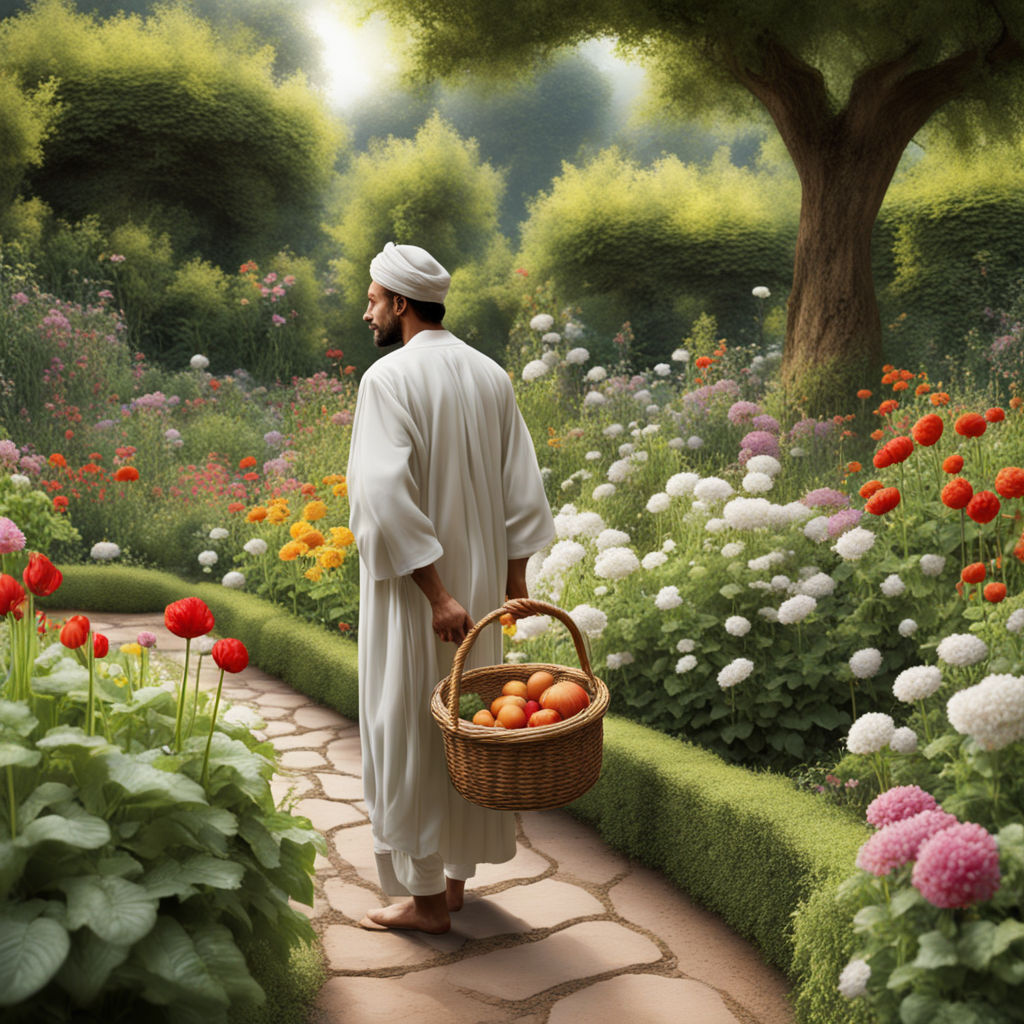Introduction
Understanding the job of a gardener is crucial for anyone interested in horticulture or looking to maintain beautiful, healthy green spaces. The job of a gardener involves a range of tasks that are essential for the upkeep of gardens, parks, and other landscaped areas. This profession requires a combination of practical skills, botanical knowledge, and a passion for nature.
The importance of the job of a gardener cannot be overstated. Gardeners play a vital role in enhancing the aesthetic appeal of our surroundings, improving air quality, and promoting biodiversity. Their work not only beautifies our environment but also contributes to our physical and mental well-being by providing green spaces for relaxation and recreation.
This article provides a comprehensive overview of the job of a gardener, detailing the various responsibilities, essential skills, tools and equipment, and the path to becoming a gardener. It also explores the challenges and rewards of the profession, the impact gardeners have on the environment, and offers insights into career advancement opportunities.
The Role and Responsibilities of a Gardener
The daily tasks and duties involved in the job of a gardener are diverse and vary depending on the specific garden or landscape they are maintaining. Planting, watering, and fertilizing plants are fundamental activities that ensure the healthy growth of flowers, shrubs, and trees. Pruning, trimming, and weeding are also critical tasks that keep plants well-groomed and gardens free of unwanted vegetation.
Seasonal activities are a significant aspect of the job of a gardener. In spring, gardeners focus on planting new plants and preparing the soil for the growing season. Summer involves maintaining the garden by watering and managing pests. In autumn, gardeners harvest produce and prepare plants for the colder months. Winter tasks include protecting plants from frost and planning for the upcoming season.
Specialized tasks in the job of a gardener can include designing garden layouts and managing pest and disease control. Gardeners often need to create aesthetically pleasing garden designs that enhance the visual appeal of outdoor spaces. They must also address any pest infestations or plant diseases that could harm the garden, ensuring that all plants remain healthy and vibrant.
Essential Skills for the Job of a Gardener
Horticultural knowledge is a fundamental skill required for the job of a gardener. Understanding plant biology, growth cycles, and the specific needs of different plant species is crucial for maintaining healthy gardens. This knowledge enables gardeners to make informed decisions about planting, fertilizing, and caring for various plants.
Practical skills are equally important in the job of a gardener. Proficiency in using gardening tools and equipment, such as shovels, pruners, and lawn mowers, is essential. Gardeners must be adept at planting, pruning, and landscaping techniques to effectively manage their gardens. These hands-on skills are developed through practice and experience.
Creative and design skills are also valuable in the job of a gardener. Designing garden layouts that combine colors, textures, and plant types harmoniously requires an artistic eye. Gardeners need to visualize how different elements will come together to create a beautiful and cohesive garden. This creativity enhances the overall aesthetic appeal of the gardens they maintain.
Tools and Equipment Used in the Job of a Gardener
Basic gardening tools are essential for the job of a gardener. Shovels, rakes, and hoes are used for digging, leveling soil, and removing weeds. Pruners, shears, and loppers are necessary for trimming and shaping plants. Watering cans and hoses are used to keep plants hydrated, ensuring they receive adequate moisture.
Advanced equipment is often required for more extensive gardening tasks. Lawn mowers and trimmers help maintain lawns and edges, keeping them neat and tidy. Composters and mulchers are used to recycle garden waste into nutrient-rich compost. Greenhouses and propagation tools enable gardeners to grow plants from seeds and cuttings, extending the growing season.
Safety gear is crucial in the job of a gardener to protect against potential hazards. Gloves, goggles, and knee pads provide protection while working with sharp tools and handling plants. Protective clothing and footwear shield gardeners from the elements and potential irritants. Safe handling of chemicals and fertilizers is also essential to prevent accidents and ensure a safe working environment.
The Path to Becoming a Gardener
Educational requirements for the job of a gardener can vary. While some gardeners learn through hands-on experience, formal education in horticulture or related fields can provide valuable knowledge and skills. Many institutions offer certifications and training programs that cover plant biology, soil science, and landscape design.
Gaining experience is crucial for anyone pursuing the job of a gardener. Internships and apprenticeships provide practical experience and mentorship from experienced gardeners. Volunteer opportunities in community gardens allow aspiring gardeners to develop their skills and build a portfolio of work. This hands-on experience is invaluable for gaining confidence and expertise.
Career advancement opportunities in the job of a gardener are available for those who wish to specialize or take on more responsibilities. Specializing in areas such as landscape design, arboriculture, or organic gardening can open up new career paths. Experienced gardeners can become head gardeners, supervising teams and managing larger gardens or estates. Some may even choose to start their own gardening business.
Challenges and Rewards of the Job of a Gardener
The physical demands of the job of a gardener are significant. Gardeners often engage in strenuous activities such as digging, lifting, and bending, which require good physical fitness. Working long hours outdoors, sometimes in adverse weather conditions, is also part of the job. Despite these challenges, the physical nature of gardening can be rewarding and contribute to overall health and fitness.
Problem-solving is a key aspect of the job of a gardener. Gardeners must address issues such as plant diseases, pest infestations, and soil problems. Identifying and implementing solutions requires knowledge, creativity, and persistence. Successfully overcoming these challenges can be highly satisfying and demonstrates the gardener’s expertise.
Job satisfaction is a major reward in the job of a gardener. Seeing the results of hard work and creativity in the form of beautiful, thriving gardens is immensely fulfilling. Gardeners also contribute to environmental sustainability by promoting healthy ecosystems and green spaces. Enhancing community spaces and providing places for people to enjoy nature adds to the sense of accomplishment.
The Impact of Gardeners on the Environment
Promoting biodiversity is a significant impact of the job of a gardener. By planting a variety of native plants, gardeners create habitats that support diverse wildlife. These plants attract beneficial insects, birds, and other animals, contributing to a balanced ecosystem. Gardeners play a crucial role in preserving and enhancing biodiversity.
Sustainable practices are integral to the job of a gardener. Composting garden waste, using organic fertilizers, and implementing integrated pest management are common practices that reduce environmental impact. Gardeners often prioritize sustainability by choosing eco-friendly materials and methods, contributing to the health of the planet.
Environmental education is another important aspect of the job of a gardener. Gardeners often engage with the community, teaching people about sustainable gardening practices and the benefits of green spaces. By participating in local conservation efforts and sharing their knowledge, gardeners inspire others to care for the environment and adopt sustainable habits.
Conclusion
Summarizing the importance of the job of a gardener, it is clear that gardeners play a vital role in maintaining and enhancing our green spaces. Their work involves a blend of practical skills, horticultural knowledge, and creative design, all of which contribute to beautiful and sustainable gardens. The job of a gardener is essential for promoting biodiversity, improving air quality, and enhancing our overall well-being.
Encouraging a career in gardening, the rewards of the job of a gardener extend beyond the aesthetic appeal of well-maintained gardens. Gardeners experience job satisfaction from seeing the tangible results of their efforts and knowing they are making a positive environmental impact. The profession offers numerous opportunities for personal and professional growth, making it a fulfilling and worthwhile career choice.
In conclusion, the job of a gardener encompasses a wide range of responsibilities and skills that are crucial for maintaining healthy and attractive green spaces. By understanding the various aspects of this profession, potential gardeners can make informed decisions and pursue a career that combines their love of nature with practical skills and creativity. Consulting with experienced gardeners and engaging in hands-on learning are key steps towards a successful career in gardening.
FAQs
What qualifications do I need to become a gardener?
To become a gardener, formal education in horticulture or related fields can be beneficial, but hands-on experience and practical skills are equally important.
How physically demanding is the job of a gardener?
The job of a gardener is physically demanding, involving activities such as digging, lifting, and bending, often in various weather conditions.
What are the best tools for a beginner gardener?
Basic tools such as shovels, pruners, and watering cans are essential for beginner gardeners to start their gardening journey effectively.
How can I gain experience in gardening?
Gaining experience can be achieved through internships, apprenticeships, and volunteer opportunities in community gardens, providing practical skills and mentorship.
What are the main challenges gardeners face?
Gardeners face challenges such as plant diseases, pest infestations, and soil problems, which require knowledge and problem-solving skills to address effectively.
Can gardeners specialize in specific areas?
Yes, gardeners can specialize in areas such as landscape design, arboriculture, or organic gardening, opening up new career paths and opportunities for advancement.
What impact do gardeners have on the environment?
Gardeners promote biodiversity, implement sustainable practices, and engage in environmental education, contributing to healthier ecosystems and communities.
How do gardeners stay updated on new techniques and practices?
Gardeners stay updated through continuous education, attending workshops, joining professional organizations, and reading industry publications.
What is the average salary for a gardener?
The average salary for a gardener varies based on location, experience, and specialization, but it typically ranges from $25,000 to $50,000 per year.
Are there opportunities for career advancement in gardening?
Yes, gardeners can advance their careers by specializing, becoming head gardeners, or starting their own gardening businesses, offering various opportunities for growth.

